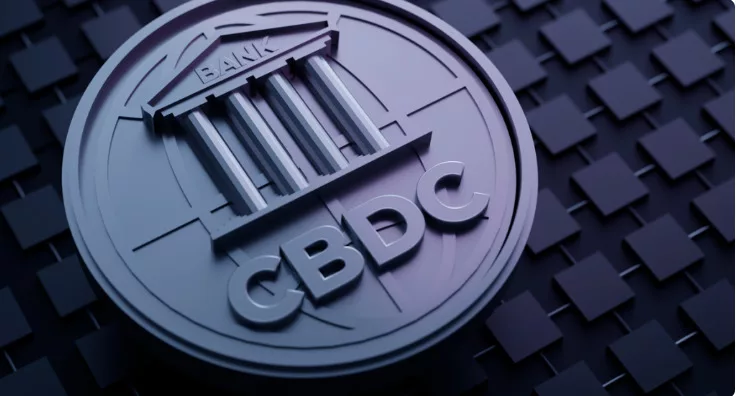Central Banks in Africa have shown a keen interest in the pursuit of launching Central Bank Digital Currencies (CBDCs) in their respective countries. The Central Bank of Nigeria was the first country in Africa to officially launch its CBDC the eNaira in October 2021. Few Nigerians have been enthusiastic about using this digital currency as legal tender.
Estimates show that less than .05 percent of 217million Nigerians have used it. Ultimately, the Central Bank of Nigeria restricted cash withdrawals as a way to coerce citizens to use the CBDC. This resulted in angry protests erupting and the vandalizing of banks and ATMs as frustrated citizens couldn’t purchase necessities due to the cash shortages. Additionally, these shortages were exacerbated by the government demanding that citizens turn in their old bank notes for new notes by February 10, 2023 right before the general elections in the country. The new notes have been in short supply, and the government just extended the new deadline to turn in old notes by April 10, 2023.
Subsequently, most traders are not accepting old currency notes, and this means that some Nigerians cannot purchase goods, even with enough ‘old’ cash at hand. The limits on cash withdrawals from ATMs in Nigeria was to promote a cashless economy, and the same ‘war on cash’ was declared in Kenya, in their attempt to promote digitization of payments. Governments in Africa are promoting CBDCs as a way to stop illicit cash flows, to reduce hoarding of cash and to help tackle inflation.

Here are 10 reasons why CBDCs will destroy African economies
-
Government Control and Surveillance
Central Banks in Africa are trying to gain total control of CBDC technology, and this means that they will track and monitor the flow and ebb of money, through the observation of transactions. This will amount to total loss of financial privacy and freedom to enjoy your hard earned money. All transactions will be tied to your Digital ID , and this invasion of privacy will enhance the monitoring of individual behavior that could have far reaching consequences, in terms of affecting their social credit scores.
2. Digital illiteracy.
In Africa today, a large number of individuals have not seen or used a computer ever. They may have basic mobile phones but not smart phones either. The rural population especially in remote areas do not have access to digital technologies, and it is very inconsiderate of African governments to roll out CBDCs without offering extensive training to these marginalized groups.
-
Lack of Infrastructure
Africa lacks the basic infrastructure necessary to support CBDCs. Africa does not have reliable power supply to support payment services. This will be a major hindrance given the rationing and disruption of energy in African countries. This means that economic activity will only take place when the power is on. Also, malfunctioning systems will disrupt economic continuity, where payments cannot happen due to systems failure. The capability to run secure payment services will be very expensive to maintain and install. Kenya and South Africa have had national power outages and high costs of electricity has seen many Africans go without power. This is a strong indicator that economies will fail when CBDCs are introduced in Africa.
-
Financial Exclusion and Discrimination.
Africa has the largest number of the unbanked population in the world. More than 50% of Africans do not have any kind of bank accounts, including mobile cash transfer systems. This kind of financial exclusion saw some communities come up with their own informal banking methods. For example, a slum in Mombasa came up with ‘Bangla-Pesa’, a complementary currency that has been a medium of exchange in this slum. Some Africans do not have IDs to open a bank account, and they feel discriminated against. The CBDCs will disrupt some of these livelihoods in African societies.
5. Cyber-attacks.
African countries with high rates of digital illiteracy are predisposed to cyber-attacks. Most government agencies have recently adopted digitization of services and payments in their countries, and there hasn’t been any or enough training to ensure that these institutions are prepared for any cyber-attacks.
6. Data Safety and Identity Theft.
Many Africans have suffered theft and loss of funds from traditional banking institutions, and in some cases the funds were never recovered. The same issue will be exacerbated by CBDCs where data can be stolen or shared by government agencies without consent resulting to huge losses for innocent victims.
7. Reimbursements
African Governments have shied away from addressing some of these concerns and have not addressed this issue satisfactorily. What happens in cases of online fraudulent transactions resulting from identity theft. What are the procedures to take when such incidents occur? How long does the process take given the bureaucratic nature of African governments? Also, African government agencies have been known to embezzle funds from institutions, and the concern being raised is ‘why should we trust the government now’?
8. Destruction of Some Economic Sectors.
The introduction of CBDCs will destroy the banking sector as well as the large informal sector in Africa. The CBDCs will replace the role of the intermediary banks, the mobile phone cash transfers as well as the informal sector especially the merchants that heavily rely on cash transactions in Africa to sell their merchandise.
-
Weak African Currencies
One recent intriguing development is that with the weakening of most African currencies, some of the landlords and investors in African countries are demanding payment in dollars. The introduction of CBDCs will mean further weakening of the currencies, because most African countries are marred in debt that they would have to service in a different digital currency.
-
The rise of tyranny and Abuse of Power.
Government authorities in Africa have been known to seize and freeze assets from their political opponents out of spite and malice. The CBDCs will also create a way of quickly shutting down access to any finances or services if the government deems an individual as a ‘threat to democracy.
